For the Sake of Argument catches up with Keshav Gupta, Alumni of Campus Law Centre, Delhi University, Hans Raj College, Delhi University and Co-Founder of
The DaisSourya (S): Tell us something about your early college life?
Keshav (K): Well, I’d like to answer this in two parts, since I have attended two colleges. I went to Hans Raj College, University of Delhi to study Economics and later to Campus Law Centre, Faculty of Law, also at University of Delhi. Before my college had started, I was in touch with a few school seniors who involved me in co-curricular activities and introduced me to Model UN at college level. I spent a lot of time traveling and attending these conferences, in retrospect, that laid a foundation to the amount of work and travel I am not involved in. At law school, I was quite clear that I had done ample amount of debating and needed a real court room experience and therefore actively stayed away from the more enticing mooting activities. I had started with internships at the court right from the second month at law school, while carrying forward my participation in Model UN in various roles.
(S): Why choose law?
(K): I always wanted to be a lawyer. Law is the instrument of change in the society. If I were to reiterate the aforementioned statements, they may sound great but they are not true. I wanted to be a civil servant when I was in tenth grade and took up humanities, but I was bogged down by the ‘prevalent corruption in the system and the interference by politicians’. It was then I decided to go to law school. I attended a bunch of orientations at LST, one of whom sold the idea of law school, quite well to a sixteen year old school kid (Let’s admit we are quite stupid at that age). During the next few years, I had developed several career interests ranging from a historian, to a scholar in theology, to studying art in Italy. I think I also wanted to preside over the World Bank one day. But at a more realisitic level, I was clear I had to go to law school. I got a really bad five hundred-ish rank at CLAT in 2008 and a decent board result. I decided to join University of Delhi at Hans Raj College to study Economics Hons. SRK went there, what could go wrong. However I was always clear that I had to go to law school one way or the other and was mentally prepared to invest another extra year or however many it took to join law school. It is funny that my law school results just came in yesterday and I am officially done with LL.B., it has been an almost decade long dream which has finally concluded.
(S): For how long have you been attending Model United Nations?
(K): As mentioned earlier, I had attended my first Model UN Conference in August 2008. I knew about the concept from two year prior as my school, DPS RK Puram used to host the prestigious DPSMUN at IHC in Delhi, but was never took part in the same. I just counted those years on my finger and the same indicates, this as the eighth year of my association with Model UN. Having said that I could be wrong, after all we need a case law to substantiate everything in our fraternity.
(S): What is, “The Dais”?
(K): The Dais is an education management organization which facilitates learning in educational institutions through soft skill building workshops in Public Speaking, Model UN, Youth Parliament, English Theatre, Leadership and Law themed activities. But then you can find all this on google and the mentioning this here would be rather moot. (If you get the joke).
Education system in our country is fairly complex. The idea of education as I see it is to bridge the knowledge deficit between the haves and the have-nots. Somehow the system does the exact opposite. We create a debating society, which only accepts great debaters. We create a moot society, which only sends stunning speakers. This creates a gap between excellent debaters on one hand and hesitant speakers on the other. The Dais is an endeavor to bridge this gap. We provide workshops, wherein we take in all the people who are willing to improve themselves and then work with them. We also have a social outreach program where we do the same things without charges to help the sections which can’t afford such workshops. I am in Bhagalpur, Bihar writing to you, as my team is conducting the sessions here with kids at a local school here. The kind of services we offer etcetera is just semantics and can evolve in time.
(S): How did this idea come about?
(K): I have been training at schools and colleges for a long time now, maybe five years. In this capitalist era, there are two parallel tendencies at work. If you charge for something you have a greater incentive for accountability and quality and if someone is paying you, they value the learnings a lot more. So, charging a fee is a part of the system. (and additional pocket money never hurts, does it). However over a period in time I realised that the process became a lot more commercialized at a widespread level. The focus on quality and comfort of whether the child is understanding what we are offering them was completely being shifted to what is the paper quality of the placard at an MUN Conference, which is so absurd, if you think of the larger purpose of co-curricular activities. We decided to formally initiate an organization where the learnings are child oriented. Not everyone can quote a UN Charter in an MUN Conference and it would be like the Chinese train their kids from their early age for Olympics, disregarding the comfort level of kids. Our idea is to work with students and understand where co-curricular fits into their life and treat it as a tool of learning rather than the very end, as misunderstood by many people. It is called ‘co’-curricular for a reason.
(S): Was it difficult during the initial days of starting up?
(K): Not really, it was fairly simple actually. The tougher parts included deciding our name, what we wanted to do and how to go about it. Dikshant Malik is a dear friend and fellow co-founder, one of the most jovial individuals you will come across. We had started discussing the idea in November and met in between my fifth semester exams to finalise that we were doing this full time. That’s when we started brainstorming about the name, logo, scope etc. That seemed like the most difficult thing back then. Setting up our office in May, however turned out to be extremely challenging. I am not the most physically imposing person you will meet. Imagine lifting all the furniture, refrigerator and other heavy items to second floor, that was a lot more taxing than anything else. Here our team including Ravish, Shaurya, Aditya, Devesh, Yashasvini, Ankur, Kartikeya (who came from Ajmer) and Himavat (who came from Indore) did a fantastic job along with immense support extended to us by our parents. It is their confidence in us and relentless support that has kept us idiots going so far. Our team is our biggest strength, each and every person in our team is so vital and loved. Each day, however challenging for us is so much fun just because of the brilliant family of The Dais.
(S): Tell us some of the milestones The Dais has achieved till now?
(K): I can tell you about how we have progressed in the last six months. We have worked with many prestigious institutions across Delhi, Rajasthan, Madhya Pradesh, Punjab, Haryana while collaborating on projects in Hyderabad, with teams working in Maharashtra, Gujarat and West Bengal.
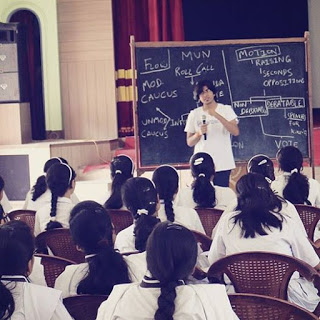 |
Keshav at Mount Assisi School Conducting
MUN Workshop |
I can tell you about the policy work we are doing with the Government of Delhi and through statistics at you to show our work but our biggest milestones have been to incorporate from the beginning and after much brainstorming, Youth Parliament, Public Speaking, English Theatre, Legal Affairs, Leadership and Public Policy, Youth Activism Departments in our organization. We are not very far from formally incorporating Quizzing also in our work. I can talk about our potential partnerships in Pakistan, Nepal, Italy among other places. Our milestones include induction of each and every stunning individuals who works with us today. Our milestone include each day when the trust and faith of our team in each other grows. More details regarding our already concluded projects can be seen at our website or social media.
(S): What plans next? Would Dais hold its own MUN/Conference someday?
(K): There are many projects in the pipeline. I am travelling to Norway in the mid August and further to Nepal from September to November to understand community development, peace advocacy. We may incorporate that in the coming time. We are already working hard on evolving the kind of work we are already doing in the respective fields. The Dais believes in growing organically based on ideas and we move towards whatever excites us within our organization’s vision and scope. Will Dais hold its own MUN/Conferences someday? We do plan to host policy workshops, leadership summits to facilitate learnings but not sure about Model UN. We are open to the idea of it, give the right time and willing individuals to take the responsibility. We however support MUN Conferences, Debates in any way we can as knowledge partners, sometimes sponsors but we remain a skill building organization.
(S): Do you think the introduction of so many new Model United Nations each year, is actually harming the quality of MUNners in India?
(K): This is fairly interesting and complex question. While nobody can claim a monopoly or qualitative superiority in understanding of the Model UN system, there are certain quality standards one needs to adhere to. Our organisation’s goal is to facilitate the bridging of the knowledge deficit, as I had previously mentioned and we would like to promote institutions to host conferences but with proper guidance. It doesn’t have to come from us only. Many organisations, individuals have emerged today, who are willing to help out. One problem I have noticed is that certain individuals who are driven to organize or start new conferences also suffer from some insecurity when it comes to taking credit for ‘founding’ the conference and ‘autonomy’ of functioning. This needs to be left at home and the greater good of the conference and the host institution in the long run must be kept in mind, and help should be sought from anyone who is known for quality work.
(S): Is Dais planning to branch out to other zones soon?
(K): The Dais has plans to work in each and every part of the country. As you may have realised that we love and value each and everyone who is associated with us, we tread slowly and carefully in uncharted territories and only once we have trusted individuals, do we move forward. We are scouting for talented, passionate individuals who would love to work with us and who are not merely driven by the monetary aspects but the vision of our organization. We emphasize on the importance of pro bono work and put it as an essential requirement for working with us as well. However watch our page, we are making a few announcements which will answer this question.
(S): Any word of advice to budding MUNners?
(K): Start believing that change is possible. Look beyond the three days of MUN and look at the real change you can facilitate with the networks you build in MUNs and the skills you acquire in the process. I met Dikshant Malik, fellow co-founder, Ravish Rana, our National Outreach Coordinator, Aditya and Alpna ma’am, our Leadership Coordinators, Krish, Head of Theatre, during Model UN Conferences. I met Shaurya Upadhyay, Head of Public Speaking Team at Model UN Trainings at a school, where he was conducting Debating Sessions. At a personal level, I have met an individual at an MUN who completely changed my life during our association and even today I transform each day with each person I meet.
We often attend Model UN Conferences, Debates, Moots with our focus on awards, being stuck up on the UN Charter and Point of Order and feel like the most intellectually superior because we have done a hundred MUNs and won a lot of them, but what we forget is that the real world is outside the conference venue and Model UN is only a training ground where you must excel in order to make a real difference in your life and that of others. A best delegate award has never won anyone anything besides an ego boost and some money. The focus needs to shift away from how well versed we are on the UN Charter and International Law and why something is outside the mandate of the committee. The focus must be on how to gather consensus, how to solve the problem and if possible, how to take the solution forward at our own level. Real life begins outside the conference and it is your performance there, that matters not the MUN.


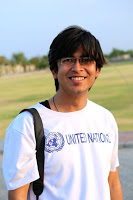
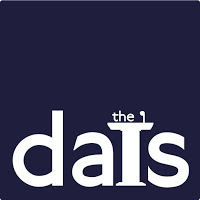
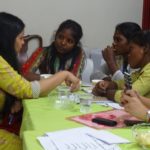
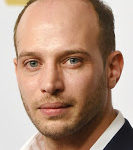
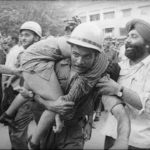
Leave a Reply